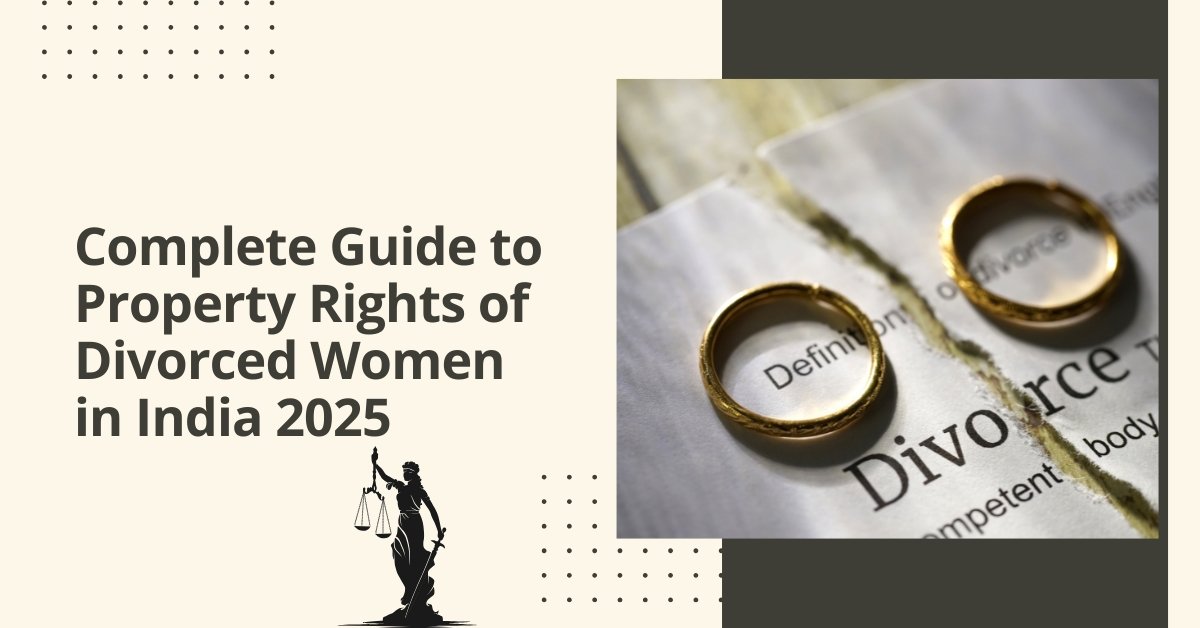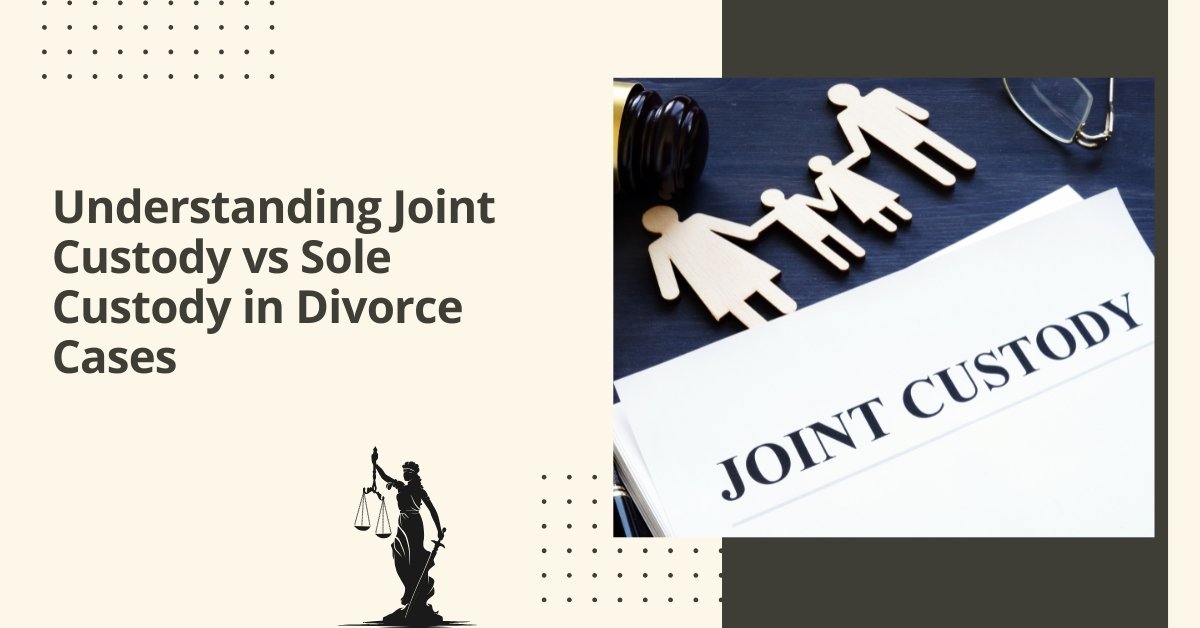Complete Guide To Property Rights Of Divorced Women In India 2025
Summary: This comprehensive guide explores the property rights available to divorced women in India, covering Hindu, Muslim, Christian, and Parsi personal laws. Divorced women can claim maintenance, stridhan (gifts and jewellery received before and during marriage), and share in jointly acquired property. While they generally cannot inherit from their ex-husband’s family property after divorce, specific rights exist under different religious laws including permanent alimony, division of marital assets, and protection of pre-marital property. Understanding these rights empowers women to secure their financial independence post-divorce.
Divorce remains a challenging life event, and for women in India, understanding their property rights becomes crucial for financial security and independence. With changing social dynamics and evolving legal frameworks, divorced women in India have several protections under various personal laws and civil legislation. This guide provides a detailed overview of property rights available to divorced women across different religious communities in 2025, helping women navigate their legal entitlements with confidence.
Understanding Property Rights Under Hindu Law
Rights During Marriage and After Divorce
Under the Hindu Marriage Act, 1955, and the Hindu Succession Act, 1956, divorced Hindu women have specific property rights. While a divorced woman loses her right to inherit from her ex-husband’s ancestral or self-acquired property after divorce, she retains certain important rights.
Stridhan Rights: A divorced Hindu woman has absolute rights over her stridhan, which includes all gifts, jewellery, and property given to her before marriage, during the wedding ceremony, and throughout the marital life. This property belongs exclusively to her and cannot be claimed by her ex-husband or his family.
Maintenance and Alimony: Section 25 of the Hindu Marriage Act allows courts to grant permanent alimony or maintenance to the wife. This can be paid as a lump sum amount or as monthly payments, depending on the husband’s income and the wife’s needs.
Share in Jointly Acquired Property: If property was purchased jointly during the marriage or if the wife contributed financially to acquiring property, she can claim her rightful share even after divorce.
Property Rights Under Muslim Personal Law
Muslim women seeking divorce have distinct rights under Islamic law and statutory provisions.
Mehr Amount: A divorced Muslim woman is entitled to receive the full mehr (dower) amount promised to her at the time of marriage if it hasn’t been paid already. This is her fundamental right and cannot be denied.
Maintenance During Iddat Period: Under Section 125 of the Code of Criminal Procedure and the Muslim Women (Protection of Rights on Divorce) Act, 1986, a divorced Muslim woman is entitled to maintenance during the iddat period (approximately three months) following the divorce.
Property Given as Gifts: Any property, jewellery, or assets gifted to the woman during her marriage remain her exclusive property and must be returned to her after divorce.
Rights of Christian and Parsi Women
Indian Divorce Act and Parsi Marriage and Divorce Act
Christian women governed by the Indian Divorce Act, 1869, can claim permanent alimony from their husbands. Courts consider factors such as the husband’s earning capacity, the wife’s financial situation, the standard of living during marriage, and the conduct of both parties when determining alimony.
Parsi women under the Parsi Marriage and Divorce Act, 1936, have similar rights to maintenance and can claim a share of the property acquired during marriage, especially if they contributed to its acquisition.
Rights Under Special Marriage Act
Couples married under the Special Marriage Act, 1954, regardless of religion, are entitled to maintenance and property division as per this secular law. The court has wide discretion to grant permanent alimony and maintenance considering all circumstances of the case.
Protection of Women’s Property Rights
Legal Safeguards
The Protection of Women from Domestic Violence Act, 2005, provides additional protection to divorced women. Under this Act, women can claim the right to reside in the shared household and seek monetary relief for financial abuse.
Residence Rights: Even after divorce, a woman may have the right to continue living in the matrimonial home, especially if she has custody of children or no alternate accommodation.
Division of Assets: Courts increasingly recognize the non-monetary contributions of homemakers and may order equitable distribution of marital assets even if the property is solely in the husband’s name.
Steps to Protect Your Property Rights
Understanding your rights is only the first step. Here’s how divorced women can protect their interests:
Document Everything: Maintain records of all gifts received, financial contributions to property purchases, and any jointly held assets.
Legal Consultation: Engage an experienced family law attorney who can guide you through the specific laws applicable to your situation.
File for Maintenance: Don’t delay filing for maintenance and alimony. Understand the provisions under your personal law and civil law.
Claim Stridhan: If your stridhan is being withheld, file a complaint under Section 406 of the Indian Penal Code for criminal breach of trust.
Secure Jointly Owned Property: If you jointly own property, ensure it isn’t sold or transferred without your consent during divorce proceedings.
Seeking Professional Legal Assistance
Property rights for divorced women in India have evolved significantly, offering better protection and financial security than before. While personal laws vary across religions, the fundamental principle remains that women should not be left destitute after divorce. From stridhan and mehr to maintenance and equitable distribution of marital assets, divorced women have multiple avenues to secure their financial future.
It’s essential to be aware of these rights, maintain proper documentation, and seek timely legal assistance to ensure these entitlements are protected and enforced. If you’re navigating a divorce and need expert guidance on your property rights, consulting a best divorce lawyer in Pune can make a significant difference in securing your financial future. As Indian society continues to progress, the legal system increasingly recognizes that marriage is a partnership where both parties contribute, and women deserve fair treatment and financial security when that partnership ends.
Most Recent Posts
- All Posts
- Child Custody
- Criminal
- Divorce
- Family
- Law
- Property
Category
Explore Our Services
Empower Your Future with Expert Legal Guidance. Consult with Leading Divorce Lawyers at Adv.Mayur N. Gajbhiye for Professional, Compassionate Representation, Ensuring a Smooth and Informed Legal Journey.








